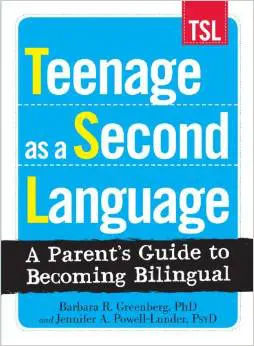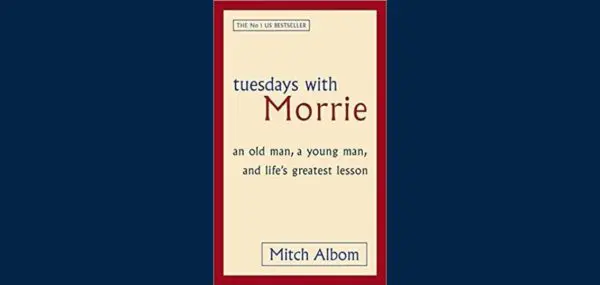Helpful for any parent, Teenage as a Second Language by Barbara R. Greenberg and Jennifer A. Powell-Lundergives all sorts of advice on communicating better with your teenager. With all sort of tips and tricks to starting conversations, it’s a must read for anyone struggling with their child.
PARENT REVIEW
True story–
Daughter: It’s not fair; Penny’s parents are letting her go!
Me: Penny’s parents sound awesome! Maybe they would be willing to adopt you.
While sarcasm is probably not the most effective tool in my parenting repertoire, it does keep me humored in situations that are not going well. Barbara R. Greenberg and Jennifer A. Powell-Lunder’s book, Teenage as a Second Language. A Parent’s Guide to Becoming Bilingual has better tools to deal with these situations. I must admit that I was skeptical about a book promising me that I could speak “Teenage.” However, this book provides great insight into the teenage language, both verbal and non-verbal (and it even addresses sarcasm).
Teenage as a Second Language outlines many strategies for talking to teens, some of which are common, but I found the authors did a nice job of bringing it all together in a comprehensive and well-organized fashion. Listening to your teens was one prevalent theme that resonated with me. This may sound obvious to some, but because I often try to communicate my earth shattering pearls of wisdom, I sometimes miss an opportunity to really listen to what my daughter is trying to say. The same is true for body language. The book suggests that non-verbal communication tells a parent more than verbal communication. The authors admit that learning to read these signs is difficult and takes practice, but is well worth the effort. When verbal and non-verbal are in contradiction, the experts say to believe the non-verbal.
Throughout the book there are Get Them Talking segments that are conversation starters. Very few of these examples involved the parent posing a question, the preferred approach seems to be that parents should start with a statement. This was a novel concept for me since I have been accused of going beyond asking questions to running a full interrogation. The suggestion is to say something positive and supportive and then, let the teen take it from there. The lesson for parents is that our role is to listen.
Many of the concepts in this book are common sense. But for me, it was a great reminder that I need to remember to use mine. Of course, there are situations where speaking Teenage will not be enough and then it’s time to call in an expert. There are suggestions for that also.
Reading this book may not make me fluent in Teenage but taking a deep breath and listening is a great start. And about the sarcasm, according to the book, not an effective tool!





